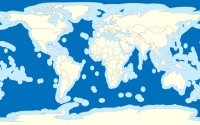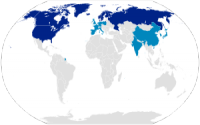News: By Source

The author defends UNCLOS as a base level of international rule of law that should be defended by all maritime states.
[ More ]
The author argues that "it’s time for fellow seafaring states to mount a more vocal, more forceful defense of freedom of the seas" and challenge China's excessive claims.
[ More ]
The author suggests multiple ways in which European nations could increase the pressure on China to abide by international rules on freedom of navigation that benefit everyone.
[ More ]
The recent conclusion of negotiations over maritime boundaries between Indonesia and the Philippines was a significant development for the two ASEAN member states and it holds important lessons for all claimant states over disputed waters in the South China Sea.
[ More ]
The argues that the best conclusion that emerges from a consideration of China’s practice of foreign policy in the South China Sea "is that the only thing consistent about that policy is its inconsistency and lack of any discernible strategy."
[ More ]
After the US announced a new Arctic ambassadorship, Chinese media reaffirmed Beijing’s interests in the region.
[ More ]
Insatiable demand for minerals and rare earth elements, coupled with dwindling resources on land have stakeholders across the world looking to a new frontier: the deep sea.
[ More ]
The author argues that the induction of six new states to the Arctic Council as "observer states" reflects "two developments: first, the great interest of these states in the commercial opportunities made possible by a transformed Arctic region; and second, the Council’s need to reinforce its position as the preeminent body for the discussion of Arctic matters."
[ More ]
Senior Colonel Zhou Bo set China-watchers atwitter last week when he informed a group including Admiral Samuel Locklear, big kahuna of the U.S. Pacific Command, that the PLA Navy has "sort of reciprocated America’s reconnaissance in our EEZ by sending our ships to America’s EEZ for reconnaissance." One meme making the rounds among the punditry holds that Beijing has now conceded the U.S. interpretation of what sorts of activities are permitted in a coastal state's exclusive economic zone (EEZ).
[ More ]
For years, China has criticized the surveillance activities of U.S. naval vessels in its 200 nautical mile exclusive economic zone. Now China has begun, in however small a way, to do the same thing off Guam and Hawaii. And, somewhat counter-intuitively, this may prove to be in the interests of peace, stability and security right across Indo-Pacific Asia.
[ More ]